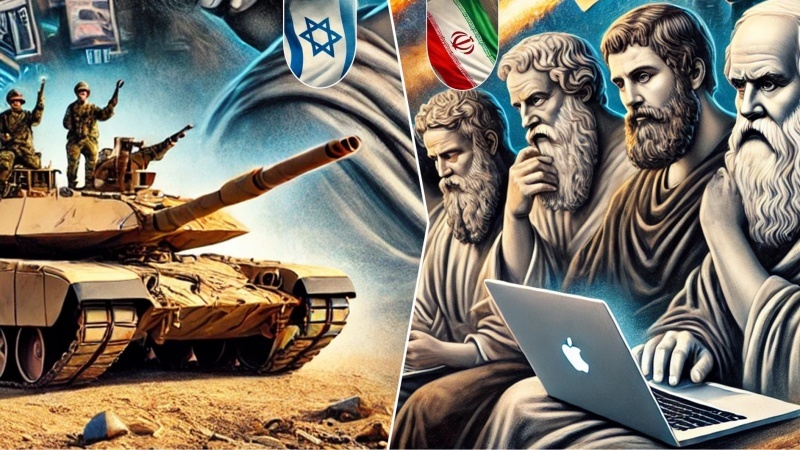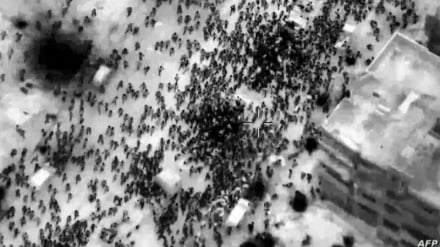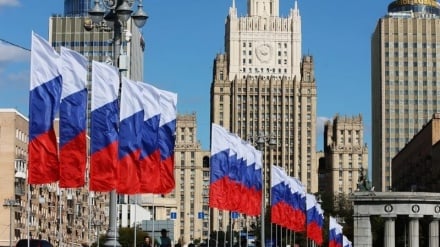How to join Iran's operation against Israeli crimes? Plato, Nietzsche, Levinas, and others reply
Pars Today- Philosophers, like Friedrich Nietzsche, emphasize on the importance of "will over power" and, in the age of digital, the "will over reality" should be considered as part of this will.
Operation True Promise 2 was an obvious symbol of Iran's strategic reaction to terrorism, militarism and occupation unleashed by the fake Zionist regime. This operation was launched in response to the assassination of Ismail Haniyeh in Tehran and terrorist act against Martyr Seyyed Hassan Nasrallah and Martyr Abbas Nilforoushan in Beirut- and in a broader sense- in response to the recent crimes of Israel against the resistance front; and the operation demonstrated various dimensions of reciprocal move.
In view of this, cyberspace, as an unbounded ground for exchanging communication and discourse, can play a vital role in directing public opinion and strengthening the spirit of resistance against dominance and colonial oppression. Therefore, users of cyberspace can play multiple roles in support for this great operation. Pars Today has dealt with different dimensions of this support and the role that the users can play in the great battle of century.
First dimension: Publication of reality as a tool for resistance
Plato in his book, "Republic" defines justice as a constant servant of reality. Publishing accurate and documented news of "Operation True Promise 2", users of cyberspace are in fact engaged in a kind of quest for reality; a reality which, unlike the Zionist and Western propaganda, must be published by free nations. This kind of activity, per se, is a sort of resistance against distortion and censoring of reality which has been mentioned by philosophers like Hannah Arendt. In other words, reality as a tool of struggle against oppression and ignorance, plays a pivotal role on cyberspace.
Second dimension: production of artistic and visual content; a manifestation of idea of resistance in art
In the view of Georg Wilhelm Friedrich Hegel, art accompanies ideas. Users of cyberspace, through production of graphic and video contents about the recent operation and resistance, in fact take the idea of resistance from theory to sense. These artistic productions are able to convey the message and arouse collective sentiments; the sentiments which are intertwined with the lofty concept of justice and resistance and can lead to deeper social changes. Just as art is known as one of the manifestations of absolute spirit in the Hegelian philosophy, production of this kind of content is a manifestation of the spirit of resistance on cyberspace.
Third dimension: dialogue as a dialectic method to perceive realities
Philosophically speaking, the climate of dialogue is a place for exchange of ideas and generation of reality just like the dialectic method of Socrates. Users of cyberspace, via taking part in discussions and analyses related to Operation True Promise 2, can reach a deeper perception of this event and its importance within the framework of resistance. This kind of negotiation, especially while information is widely manipulated, plays a vital role in clarification of the real dimensions of the event and somehow helps in formation of collective intellect.
Fourth dimension: confronting enemy's propaganda; a battle in the climate of truth and lie
Philosophers, like Friedrich Nietzsche, emphasize on the importance of "will over power" and, in the age of digital, the "will over reality" should be considered as part of this will.
Users of cyberspace, confronting the propaganda of hostile media, are in fact in the intellectual and intelligence front. This confrontation is possible only through publication of valid documents and defense of reality, since once propaganda is left unanswered, will drag public opinion to error. Defense of Operation True Promise 2 against media distortions is a moral and philosophical duty as important as military confrontation.
Fifth dimension: digital empathy; promotion of common values on cyberspace
According to Emmanuel Levinas, empathy and responsibility towards others are among the most important moral principles. Showing solidarity and support for resistance forces, users of cyberspace are in fact bolstering common human values like justice and confrontation against oppression. This digital empathy can be manifested in the form of supportive messages or publication of the words of resistance leaders and as a collective voice against oppression.
Sixth dimension: Encouragement of active participation; invitation to practical solidarity
In a pragmatic view, reality is proved in practice. Users, through encouraging others to participate in supportive campaigns or sending appreciative messages to the armed forces and families of martyrs, can demonstrate a kind of moral pragmatism. This pragmatism means not only a digital reaction but also a socio-political action which can be visible on cyberspace.
Seventh dimension: promotion of resistance discourse; reconstruction of collective morality against oppression
Finally, users of cyberspace, with promotion of resistance discourse through quotations, articles and analyses, can help reconstruct collective morality. In a world, where material interests are often preferred to justice, this discourse encourages steadfastness against oppression and revival of human values; and enhances global collective salvation.
Key phrases: Iran's operation and Israel, war of Iran and Israel, struggle against Israel, Iran's power, Seyyed Hassan Nasrallah
RM/UR



